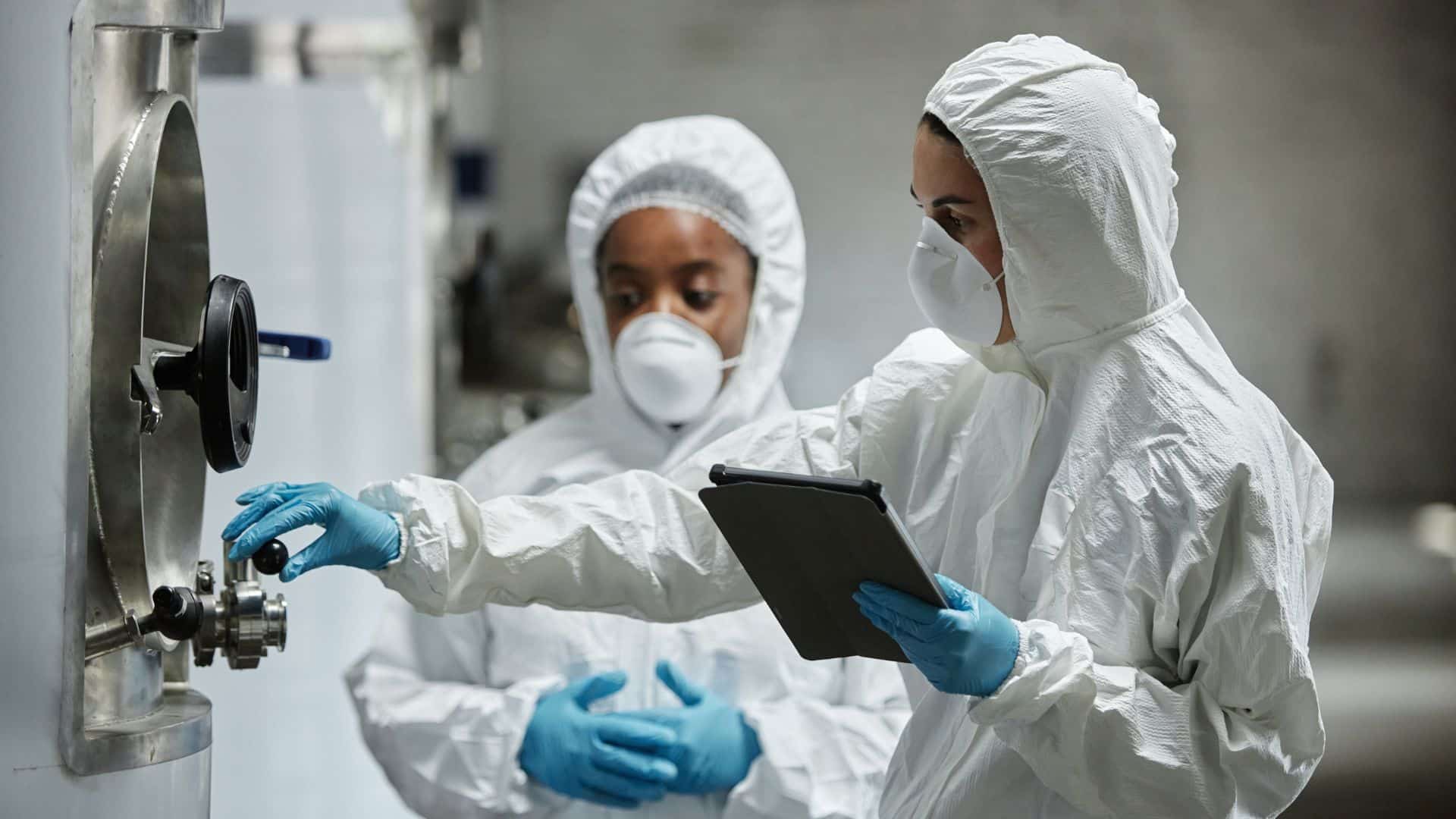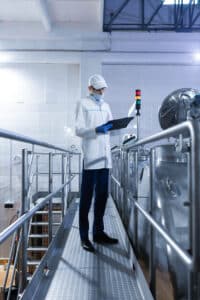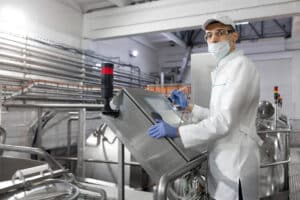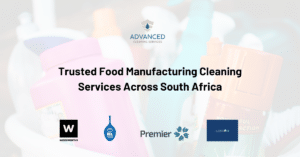Commercial Cleaning is a Business Investment
For many operations managers, cleaning is often something to cut when margins are tight. While cutting corners on hygiene may seem thrifty in the moment, it invites far costlier trouble later. The losses from a food safety failure can exceed R100 million.
Proactive cleaning is not an overhead but an investment in disguise. Investing in preventive hygiene today protects three of your biggest profit drivers, turning every rand spent on cleaning into returns across your company.
Downtime Caused by Hygiene Failures
Operational downtime is a direct and costly consequence of inadequate cleaning. In a cleaning context, you can think of it in two ways.
Unplanned downtime is when your company fails a food safety audit. Everything grinds to a halt while the plant undergoes a deep clean and re-validation. In the case of minor issues, this can result in a loss of anywhere from 48 hours to weeks of plant operating time. More serious food safety issues can lead to months of downtime.
Planned downtime refers to scheduled windows in which cleaning can occur. The company will slot deep cleans into pre-agreed gaps. Commercial cleaning aligns with the product schedule to minimise operational downtime. Commercial cleaning companies can often leverage in-progress cleaning (CIP) to avoid stopping the line altogether.
Understanding Food Safety-Related Product Recalls
Product recalls are another cost of poor cleaning, with a clear impact on brand reputation, sales and business revenue.
The cause of food contamination can be twofold: systematic cleaning failure and staff negligence. Systematic cleaning failure results from a failure to set a foundation of standard operating procedures (how and when your staff should clean equipment) and system controls.
The root cause of staff negligence stems from a lack of holding commercial cleaning staff accountable and failing to implement practical risk-reduction steps.
In the food industry, consumers who have already consumed contaminated products may suffer from adverse effects, which can lead to a loss of future revenue caused by the impact on brand reputation. Another vital aspect is how cleaning failure can result in substantial legal penalties.
Reputational Damage That Lingers
Reputational fires can burn far longer than the typical 48-hour window most brand PR teams anticipate. Take Chipotle Mexican Grill as a case in point: the company lost an estimated US $6 billion in market value during the 2015 food safety crisis, which involved E. coli, salmonella, and norovirus outbreaks across multiple states. The fallout was severe — profits dropped by 44%, foot traffic collapsed, and it took years for the brand to regain consumer trust.
Ongoing lawsuits and civil liabilities can also drag reputations further through the mud. These cases often resurface in the media, creating fresh waves of scrutiny.
In South Africa, unresolved food safety issues are increasingly seen as public, priced-in liabilities, affecting credit ratings and investor confidence alike.
Consumer trust is equally at stake. A Retail and Marketing Review study on brand loyalty after a crisis found that one in four South African shoppers permanently abandoned a recalled brand.
Here is a comprehensive look at how South African standards treat food safety audit issues:
- SANS 10049: Your company must suspend production, launch a root-cause investigation and notify the local municipality’s Environmental Health Practitioner. They may also withdraw your Certificate of Acceptability for the premises until corrective actions are verified on-site.
- SANS 10330: You must conduct a mandatory recall and full HACCP plan review and re-validation under this standard. The certification body (CB) issues an immediate suspension if the recall reveals that HACCP was ineffective.
- SANS 22000: The recall and the investigation become part of management review inputs. If the CB grades the incident as critical, they will suspend your ISO 22000 certificate until an additional audit proves the effectiveness of the new controls.
- FSSC 22000: Your company must notify the certifier within three working days of any public recall, regulator sanction or outbreak. The certifying body can suspend the certificate immediately and list the suspension in the public FSSC database.
- BRCGS Food: You must tell the CB within three working days of deciding to recall. You must also log the incident in the BRC directory. Your grading will drop automatically; the CB may impose an additional visit or suspend the certificate until proof of the root cause is accepted.
- AIB International GMP: Written Recall must be activated and demonstrated to work; AIB expects you to locate the suspect lots inside 3–4 hours. The next AIB inspection will score a Critical and classify the site as “Unsatisfactory,” which will void the certificate until re-inspection.
- Inspectorate: Traceability and recall procedure must achieve 100% recovery within 3 hours. Critical finding (“C”) obliges you to contact key customers immediately and stop shipment. SGS may flag you in its client database.
- STAR YUM (KFC): Any confirmed food-safety incident results in the supplier being moved to “Red” status; all Yum! Brands halt deliveries. “Red” means no new orders until you pass a full STAR Food-Safety Audit and Quality-System Assessment.
How Advanced Cleaning Services Helps Protect Your Business
As a priority, Advanced Cleaning Services provides proactive commercial cleaning programs, rather than reacting to every potential situation where downtime or reputational damage has already impacted your business. We build a master cleaning schedule that slots into your production cycle, training an on-site crew to follow standard operating procedures.
During onboarding, we include a risk assessment to ensure problem areas (drains, high-access beams, confined spaces) are tackled in the plan.
We also leverage real-time reporting with our i-Clean System, a cloud-based system that puts every shift’s cleaning data in your browser. Operators “tag” zones with barcode scans; the system timestamps each task, and dashboards flag any overdue jobs in real-time. Automated quality reports give you completed checklists and exception logs.
Don’t Let Poor Hygiene Cost You – Act Now
Remaining idle means waiting for a food safety issue to happen. Our industry’s recent crises demonstrate how an audit failure can result in multi-million-rand losses.
Take the first step today, speak to an expert and book a hygiene risk assessment to discover how Advanced Cleaning Services can protect your brand and profits.



